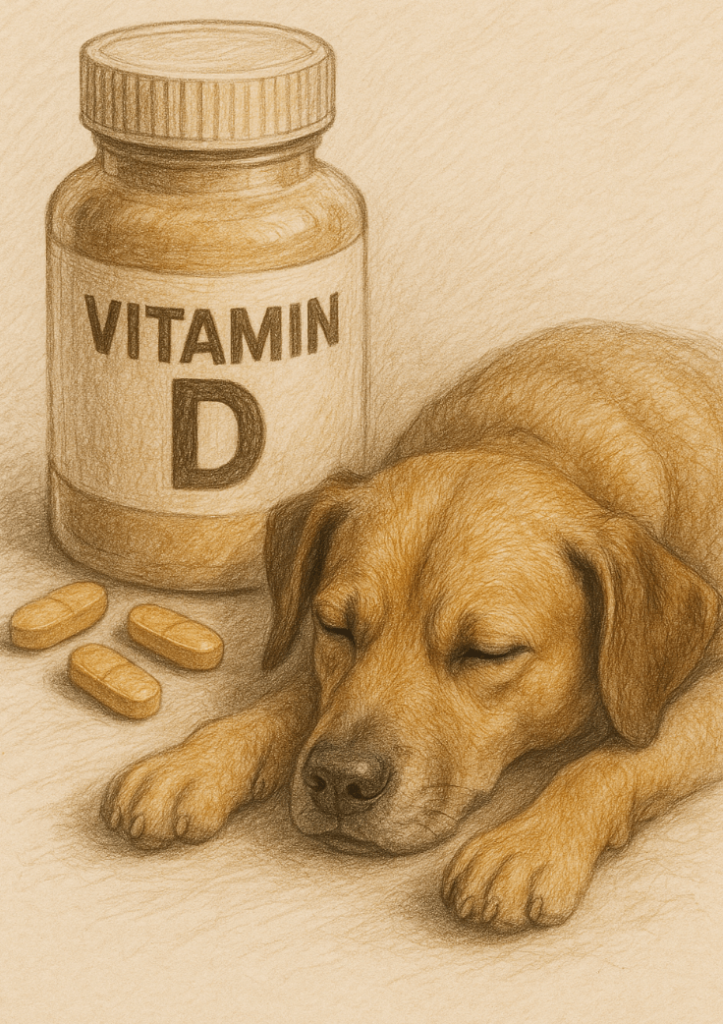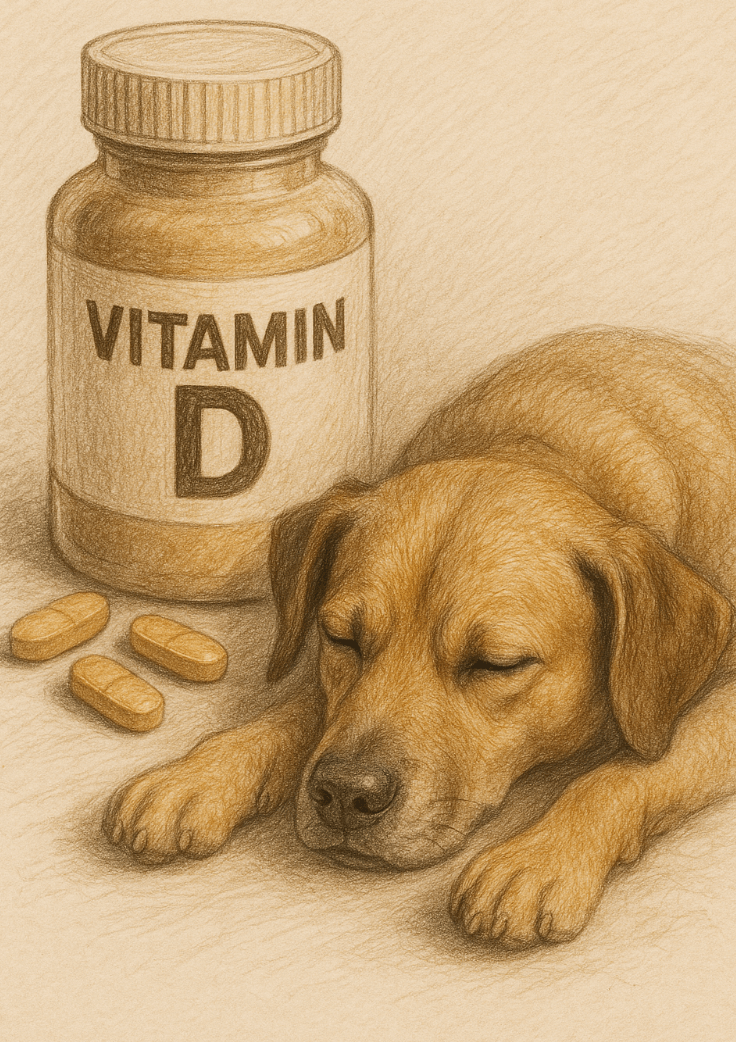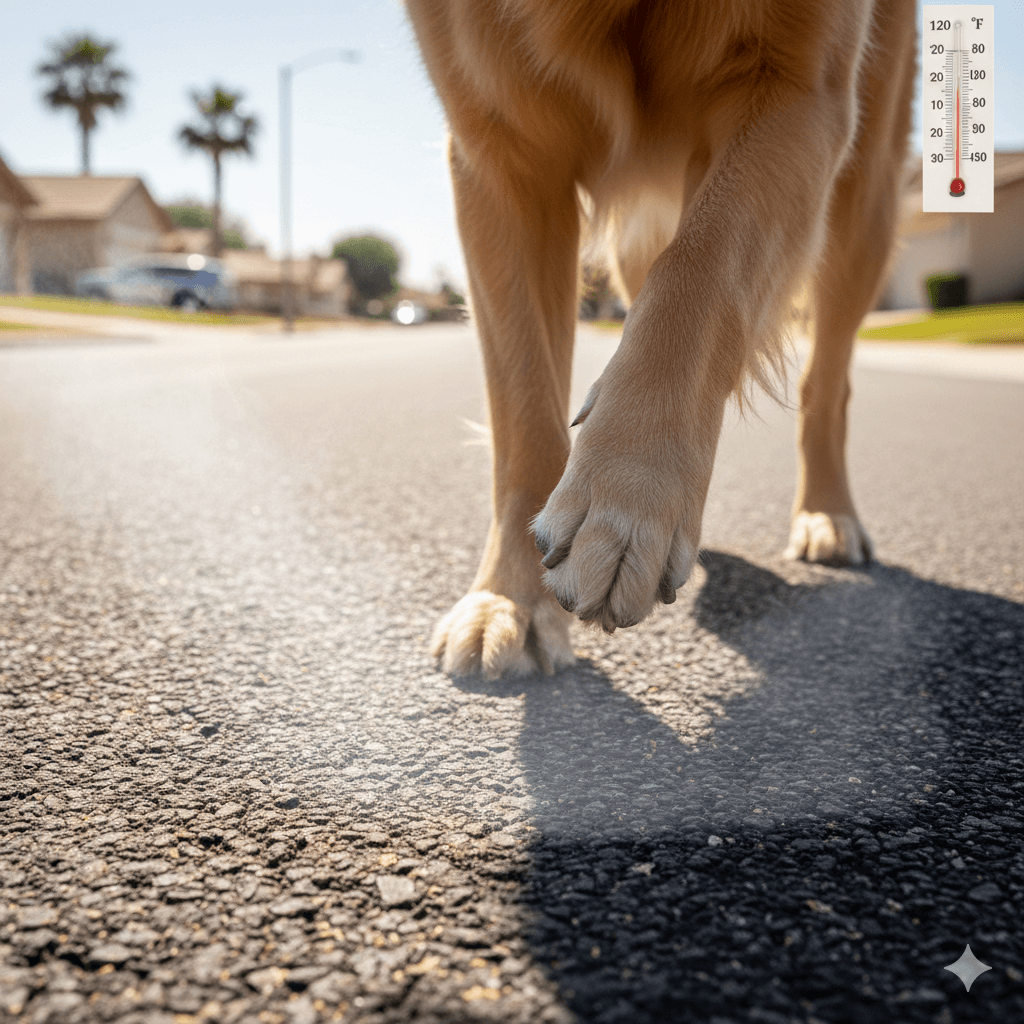Will Vitamin D Hurt a Dog?
As a responsible pet owner, you may wonder whether vitamin D is safe for your furry friend. After all, vitamins are essential for health—but can too much of a good thing be harmful? Vitamin D plays a crucial role in maintaining strong bones, supporting the immune system, and aiding calcium absorption in dogs. However, like many nutrients, it has a delicate balance. Too little can lead to deficiencies, while too much can result in toxicity. In this blog post, we’ll explore everything you need to know about vitamin D for dogs, including its benefits, risks, and how to ensure your dog stays healthy without overdoing it.
Expert Insight on Vitamin D in Dogs
“One of the main functions of vitamin D is to increase the absorption of calcium and phosphorus from a dog’s intestines, kidneys, and bones. However, too much vitamin D can cause an imbalance of these minerals in a dog’s blood, which can lead to calcium depositing into several of their organs, including the heart and kidneys. This can cause these organs to malfunction or stop working.”
Understanding the Risks of Vitamin D Overdose in Dogs
While vitamin D is vital for your dog’s health, excessive amounts can lead to serious complications. Understanding these risks will help you prevent accidental overdoses and keep your pup safe.
Vitamin D Toxicity Symptoms:
Signs of toxicity include vomiting, diarrhea, loss of appetite, and increased thirst or urination. These symptoms should not be ignored.Kidney Damage:
Excessive vitamin D can cause calcium buildup in the kidneys, leading to kidney stones or even kidney failure if left untreated.Calcium Imbalance:
High levels of vitamin D can disrupt calcium levels in the body, potentially causing stiffness, weakness, or lameness in dogs.Liver Stress:
The liver processes vitamin D, and an overload can strain this vital organ, affecting overall health and metabolism.Sources of Overdose:
Dogs can accidentally ingest toxic levels through supplements, certain human foods, or rodenticides containing cholecalciferol (a form of vitamin D).
By being aware of these risks, you can take proactive steps to avoid exposing your dog to dangerous levels of vitamin D.

Benefits of Vitamin D for Dogs
Despite the potential risks, vitamin D is essential for your dog’s overall well-being when consumed in appropriate amounts. Here’s how it supports their health.
Bone Health:
Vitamin D helps regulate calcium and phosphorus levels, promoting strong and healthy bones throughout your dog’s life.Immune System Support:
Adequate vitamin D strengthens the immune system, helping your dog fight off infections and illnesses more effectively.Muscle Function:
Proper levels of vitamin D contribute to healthy muscle function, reducing the risk of weakness or fatigue.Heart Health:
Research suggests that vitamin D may play a role in maintaining cardiovascular health in dogs, supporting long-term vitality.Mood Regulation:
Some studies indicate that vitamin D may influence mood and behavior, contributing to a happier and more balanced dog.
When provided in moderation, vitamin D is a powerhouse nutrient that keeps your dog thriving.
Check this guide 👉How Do I Give Multivitamins to My Dog? Best 7 Expert Tips!
Check this guide 👉Can I Put Vitamin E Oil on My Dog? Best 7 Health Tips!
Safe Sources of Vitamin D for Dogs | Toxic Sources to Avoid |
|---|---|
Commercial dog food with balanced nutrients | Human vitamin D supplements |
Fatty fish like salmon (in moderation) | Rodenticides containing cholecalciferol |
Sunlight exposure during outdoor play | High-dose cod liver oil |
Vet-prescribed supplements | Certain fortified human foods |
Egg yolks (occasionally as treats) | Raw diets with unbalanced formulations |
How to Prevent Vitamin D Overdose in Dogs
Preventing vitamin D toxicity requires vigilance and a clear understanding of what your dog consumes daily. Follow these tips to keep them safe.
Avoid Human Supplements:
Never give your dog human vitamin D supplements, as they are formulated for people and can easily exceed safe limits for pets.Check Pet Food Labels:
Ensure your dog’s food contains appropriate levels of vitamin D and is certified by reputable organizations.Limit Table Scraps:
Many human foods, especially fortified ones, contain high levels of vitamin D. Stick to dog-safe snacks instead.Store Hazardous Items Safely:
Keep rodenticides, medications, and supplements out of reach to prevent accidental ingestion.Consult Your Veterinarian:
If you’re unsure about your dog’s vitamin D intake, consult your vet for personalized advice and recommendations.
By taking these precautions, you can protect your dog from the dangers of vitamin D overdose.
Signs Your Dog May Have a Vitamin D Deficiency
While too much vitamin D is dangerous, too little can also harm your dog’s health. Recognizing the signs of deficiency ensures timely intervention.
Weak or Brittle Bones:
A lack of vitamin D can lead to poor bone density, making your dog prone to fractures or joint issues.Lethargy and Fatigue:
Dogs with deficiencies often appear tired or unwilling to engage in physical activities.Poor Coat Condition:
A dull, dry coat or excessive shedding may indicate nutritional imbalances, including low vitamin D levels.Frequent Illnesses:
A weakened immune system due to insufficient vitamin D can make your dog more susceptible to infections.Muscle Weakness:
Deficiencies can cause muscle pain or difficulty moving, impacting your dog’s mobility and quality of life.
If you notice these signs, consult your veterinarian to determine if a dietary adjustment is needed.
Common Mistakes Pet Owners Make with Vitamin D
Even well-meaning pet owners can unintentionally expose their dogs to vitamin D risks. Avoid these common mistakes to keep your dog safe.
Over-Supplementing:
Adding unnecessary supplements to your dog’s diet can quickly lead to toxic levels of vitamin D.Feeding Improper Human Foods:
Fortified cereals, milk, and other human foods may contain unsafe levels of vitamin D for dogs.Ignoring Product Labels:
Not checking the nutritional content of commercial dog food can result in accidental overconsumption.Misinterpreting Symptoms:
Mistaking signs of toxicity for other illnesses can delay treatment and worsen outcomes.Skipping Vet Consultations:
Making dietary decisions without professional advice increases the risk of errors.
Avoiding these pitfalls ensures your dog receives the right amount of vitamin D without compromising their health.
Natural Ways to Boost Your Dog’s Vitamin D Intake
If your dog needs more vitamin D, consider these natural and safe methods to incorporate it into their diet.
Include Fatty Fish:
Small amounts of cooked salmon or sardines (without seasoning) are rich in vitamin D and safe for dogs.Offer Eggs Occasionally:
Egg yolks contain moderate amounts of vitamin D and can be served boiled or scrambled as an occasional treat.Provide Balanced Dog Food:
High-quality commercial dog food is formulated to meet your dog’s nutritional needs, including vitamin D.Encourage Outdoor Play:
While sunlight isn’t a primary source, regular outdoor activity supports overall wellness alongside dietary intake.Use Vet-Approved Supplements:
When necessary, opt for supplements specifically designed for dogs to ensure safety and efficacy.
These strategies allow you to boost your dog’s vitamin D naturally and responsibly.
How to Respond if Your Dog Consumes Too Much Vitamin D
Accidents happen, and if your dog ingests excessive vitamin D, quick action is critical. Here’s what to do in such situations.
Identify the Source:
Determine whether the overdose came from supplements, rodenticides, or contaminated food to provide accurate information to your vet.Call Your Veterinarian Immediately:
Time is of the essence—contact your vet or an emergency animal clinic right away for guidance.Do Not Induce Vomiting Without Advice:
Attempting home remedies without professional input can worsen the situation.Monitor Symptoms Closely:
Watch for signs like vomiting, lethargy, or excessive thirst, which indicate toxicity requiring urgent care.Keep Records of Ingredients:
Bring packaging or product details to the vet appointment to help them assess the severity of the exposure.
Acting swiftly and seeking professional help ensures the best possible outcome for your dog.
Frequently Asked Questions About Vitamin D and Dogs
Can dogs get vitamin D from sunlight?
Yes, but their primary source of vitamin D comes from their diet, as their skin isn’t as efficient at synthesizing it compared to humans.
What happens if my dog eats rat poison with vitamin D?
Rat poison containing cholecalciferol is highly toxic and requires immediate veterinary attention to prevent severe health complications.
Is it safe to give my dog fish oil?
Fish oil is generally safe in moderation, but always choose products specifically formulated for pets to avoid overdosing.
How much vitamin D does my dog need daily?
The exact amount varies based on size, breed, and age. Consult your vet for tailored guidance to meet your dog’s needs.
Can puppies have vitamin D supplements?
Puppies require adequate nutrition for growth, but supplements should only be given under veterinary supervision to avoid toxicity.
Finding the Right Balance for Your Dog’s Health
Vitamin D is a vital nutrient that supports your dog’s bones, muscles, immune system, and overall well-being. However, finding the right balance is key—too little can lead to deficiencies, while too much can cause toxicity. By understanding the risks, benefits, and safe sources of vitamin D, you can ensure your dog stays healthy and happy. Always consult your veterinarian before making changes to your dog’s diet or supplement routine. With proper care and attention, you can provide your furry companion with the nutrients they need to thrive.
Newfoundland Dog Personality: Best 7 Expert Tips! – Discover the gentle, loyal, and protective nature of this giant breed perfect for families.
Can Hot Pavement Burn Your Cats Paws? Best 7 Expert Tips! – Learn how to protect your cat’s paws from hot surfaces and prevent painful burns this summer.
Can Hot Pavement Burn Your Dogs Paws? Best 7 Expert Tips! – Learn how to protect your dog’s paws from hot surfaces and ensure safe summer walks.
Irish Wolfhound Size: Best 7 Expert Tips! – Discover the ideal height, weight, and care tips for this majestic giant breed. Learn how to manage their impressive stature responsibly.





